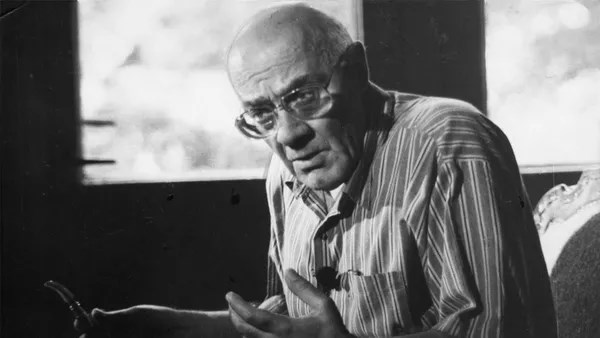
Repeating Mamardashvili | Essay 2 – Why Proust?
Laziness. Fear. Hope.
These are the psychological mechanisms which, according to Merab Mamardashvili's very first lecture on Proust (1981_82), prevent us from knowing ourselves. Laziness defined as the underlying notion for postponement, procrastination. This can mean both a temporal shift from today or now to tomorrow and an ontological attempt to position one's existence onto others, this other possibly being another person or a nation, state, society. Further, laziness as strongly connected to fear, not a fear of something specific but of finding out how things really are / of knowing what things really are / to learn - how the situation really is. (1/1981_82) Mamardashvili refers not only to Proust, but to Dante's Divine Comedy in Mikhail Lozinsky's translation, when explaining that fear functions as an obstacle, quoting Virgil's words: Here fear should not give advice. / Here fear must not advise. / Here fear should not give advice. (1/1981_82) Next to fear of not wanting to see, there is hope of keeping us from seeing. Mamardashvili again refers to Dante, this time slightly paraphrasing Lozinsky's translation when citing the inscription on the doors to hell: Give up hope, everyone who enters here. / Abandon all hope, whosoever enters here. / Leave hope to everyone coming in here. (1/1981_82)
In the first lecture of the second lecture series on Proust (1984_85), Merab Mamardashvili once again references Dante, though not by listing the above mentioned psychological obstacles, but through analyzing Dante's encounter with Geryon as a moment of seeing the (symbolic) truth, but considers it impossible to say it, saying the following words: "We must keep the truth, which is like a lie, with closed lips." / but to say it is impossible, saying the following words: "We must keep the truth, like a lie, must keep closed mouths." / but it is impossible to say it, saying the following words: "We must keep the truth like a lie closed with our mouths." (1/1984_85) Words can be deceptive.
So, why Proust? Merab Mamardashvili sees in Marcel Proust's novel 'À la recherche du temps perdu' (In Search of Lost Time) an example, as defined by Proust himself, of life as an effort in time. This effort is the key to distinguish what we experience from what is experienced - our neighbors experience, relatives, friends, of what we reproduce only verbally / distinguish what we experience ourselves from what we experience - what our neighbors, relatives, acquaintances, experience - what we reproduce only verbally / distinguish what we're experiencing ourselves from what we're experiencing - our neighbors, our loved ones, familiar, that we reproduce only verbally. (1/1984_85) And this effort, this journey is at the core of both Proust's text and Mamardashvili's lectures. The urge to commit to this journey as a life task / as a task of life / as a life task. (1/1981_82) Working with and through Proust's text hence is not an academic task, an analysis or interpretation of the literary text, but a call for s'engager, getting involved with one's own life and therefore life itself in line with Descartes' principle: Cogito, ergo sum. (1/1981_82)
So, why Proust? Because Mamardashvili points out that something fundamental happens to us, that the act of reading is woven into the totality of our life manifestations, life actions / something fundamental happens to us, that the act of reading is intertwined with the totality of our life manifestations, our life actions / something fundamental is happening to us, that the act of reading is woven into the set of our life manifestations, life's actions. (1/1984_85) It is not just happening, it is happening to us. The text, its form, its structure trigger an engagement with the experiences of which we read, and furthermore act as means, as tools.
Merab Mamardashvili's is a call to arms, a call to work. Offering tools through Proust as well as the spacial imaginary of a path: I am talking about the path, about diving, about communication between points, that is, I am leading to the main topic of our discussion - to topology. / I talk about paths, about diving, about communication between points, i.e. I lead to the main topic of our reasoning - topology. / I talk about the path, about diving, about communication between points, that is, leading to the main theme of our reasoning - to topology. (1/1981_82)
It is a call to arms that, when taken up today, with Mamardashvili and Proust as our Virgil(s), might yet become an extended search of lost time.
Author: Katharina Stadler
Lectures 1981_82:
Мамардашвили Мераб. Лекции о Прусте (психологическая топология пути). Ad Marginem. Москва. 1995. (Редакторы: Е.В. Ознобкина, И.К. Мамардашвипи, Ю.П. Сенокосов)
Lectures 1984_85:
Мераб Мамардашвили. Психологическая топология пути. Фонд Мераба Мамардашвили. Москва. 2014. (Редактор: Е.М. Мамардашвили)
AI translations by https://translate.google.com / https://www.deepl.com/en/translator / https://www.collinsdictionary.com/translator



